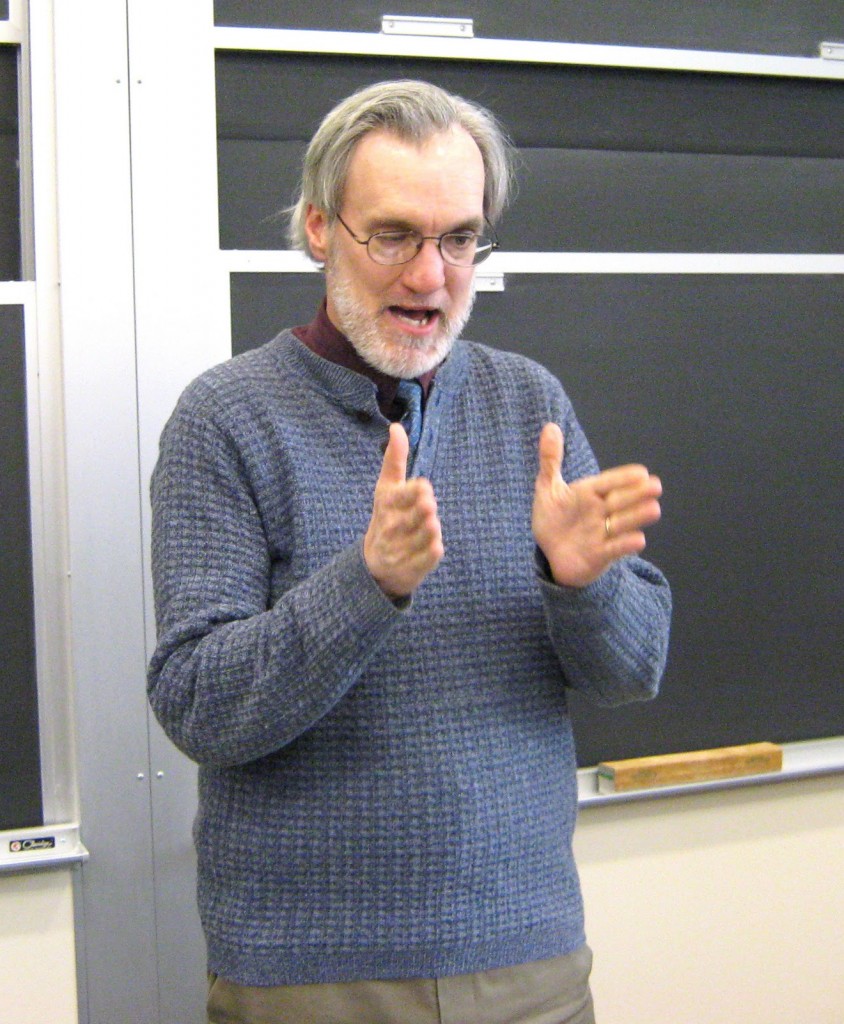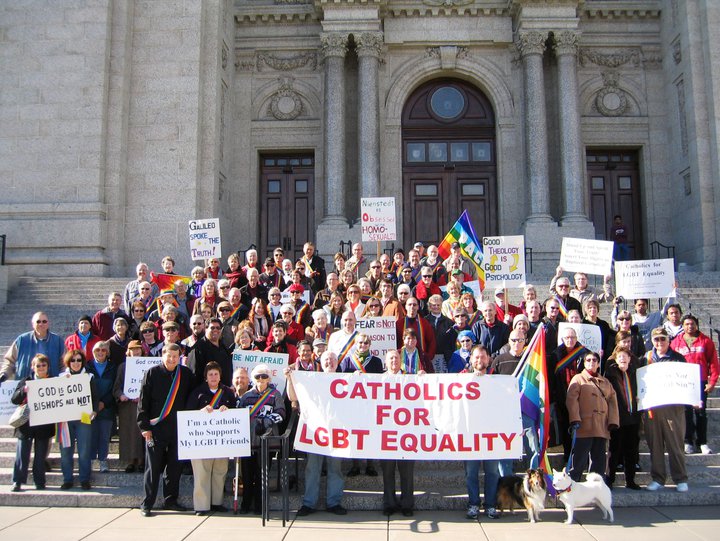As students of history will know, the Roman Catholic Church has a long history of being horribly wrong on many, many issues. Remember Galileo? Or worse yet, St. Paul advising slaves to be obedient to their masters? Every time that science and knowledge has advanced, the Church has led up the rear guard that has tried to hang on to ignorance if not out right idiocy.
Now, medical science and mental health knowledge more or less have concluded that homosexuality is a natural and normal phenomenon contrary to the Church’s 13th century teachings on “natural law.” So what does the Church do?
Rather than admit that calling gays “inherently disordered” and worse is simply wrong, a spokesman for the Church are trotting out a new and less-than-brilliant explanation as to why condemning gays is still morally acceptable. What is it?
He claims that the Devil causes a supposed malfunction in fetal development in the womb and, so, a gay child is born.
I’m serious. That’s the new standard of batshitery that passes as intelligence among the U. S. Catholic bishops. Right Wing Watch looks at the lunacy published in The Pilot, the official publication of the Archdiocese of Boston. Here are highlights:
Daniel Avila is the self-described “marriage guy” for the Catholic bishops. More formally, he is the policy advisor for marriage and family to the US Conference of Catholic Bishops’ Subcommittee for the Promotion and Defense of Marriage. He thinks people are gay because Satan was messing around with them while they were in their mothers’ wombs. God, he says, has nothing to do with it.
Writing in The Pilot, the official newspaper of the Archdiocese of Boston, Avila cites one scientist’s theory that homosexual orientation is the result of fluctuations in maternal hormones. To that thesis, he adds a gigantic leap: the devil must be doing it.
Avila gave no hint of his satanic origin theory of homosexuality when he spoke at the Values Voter Summit in October, though it (and the reference to natural disasters) does sound like the kind of thing one would hear from anti-gay conservative evangelicals.
For a sampling of Avila’s bullshit and batshitery, here are some highlights from his piece in The Pilot:
More than once I have heard from or about Catholics upset with the Church for its insistence that sexual relations be limited to marriage between husband and wife. Does not this moral rule force people with same-sex attraction into lives of loneliness? If they are born that way, then why should they be punished by a restriction that does not account for their pre-existing condition?
God does not cause same-sex attraction. . . . So what causes the inclination to same-sex attraction if it appears early and involuntarily and “who,” if anyone, is responsible? In determining the answer to the “what” question, the most widely accepted scientific hypothesis points to random imbalances in maternal hormone levels and identifies their disruptive prenatal effects on fetal development as the likely and major cause.
In other words, the scientific evidence of how same-sex attraction most likely may be created provides a credible basis for a spiritual explanation that indicts the devil. . . . Therefore, whenever natural causes disturb otherwise typical biological development, leading to the personally unchosen beginnings of same-sex attraction, the ultimate responsibility, on a theological level, is and should be imputed to the evil one, not God. Applying this aspect of Catholic belief to interpret the scientific data makes more sense because it does not place God in the awkward position of blessing two mutually incompatible realities — sexual difference and same-sex attraction.
Being born with an inclination which originates in a manner outside of one’s control is not sufficient proof that the condition is caused by God or that its satisfaction meets God’s purpose.
I assume Avila blames Satan for making people stupid too. Amazingly, some still ask me why I left the Roman Catholic church. “Batshitery” and “the deliberate embrace of ignorance” ought to more than enough answer to this question. Increasingly, in my view, to remain a Catholic one must first have had a lobotomy or be an unvarnished, ignorant bigot.
Complete Article HERE!




